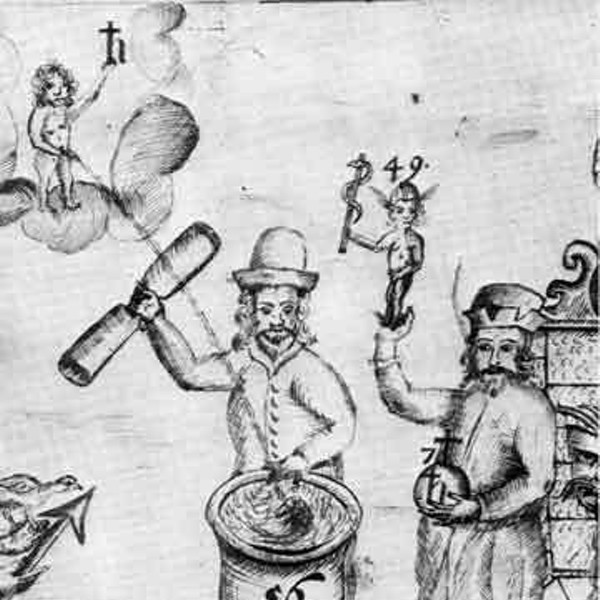“Who are you?” inquired Hakuin.
“I am a samurai,” the warrior replied.
“You, a soldier!” exclaimed Hakuin. “What kind of ruler would have you as his guard? Your face looks like that of a beggar.”
Nobushige became so angry that he began to draw his sword, but Hakuin continued: “So you have a sword! Your weapon is probably much too dull to cut off my head.”
As Nobushige drew his sword Hakuin remarked: “Here open the gates of hell!”
At these words the samurai, perceiving the master’s discipline, sheathed his sword and bowed.
“Here open the gates of paradise,” said Hakuin.
—Hakuin Ekaku is an 18th-century Zen master in the Rinzai lineage
Esteemed Reader of Our Magazine:
Through a wide hay field the small boy and I walked slowly towards a wood. Sounds of children—yelling, laughing, talking, whispering—emanated from somewhere beyond the tree line. As we passed into the forest we began to see them, gathered in small groups, or alone, making piles of stones and branches, picking and eating berries, fencing and jousting with branches. We came to a brook in which children were exploring up or downstream, splashing in the water and in the drops and pools of sunlight that shone through the gaps in the canopy.
A narrow bridge of stones spanned the stream swollen from many rain showers, one of which had just passed. I held the two-year-old’s hand and balanced across the rocks toward the other shore. Midway the boy said, “Let go, Dad,” and jumped into the stream. The water was higher than the bottom of his shorts, and his yellow boots disappeared beneath the moving water. He was not upset, nor particularly impressed, as he waded through, and climbed up the far bank. I hurried to reach him as he sloshed about with boots full of water.
Adults were among the children, and clearly responsible, but more distinguishable by their size than disposition. Mostly they were playing, and suggesting things to do in the woods, leading or following the children off in groups or singly to explore.
A woman was cutting a log with a handsaw. Her movements were deliberate and unhurried, and in the midst of all the activity she plied her log with a steady rhythm and great attention. We stopped and watched for a few moments, and then moved on to view the camp museum, full of bones and stones, a variety animal skulls, mushrooms and strips of bark, all artfully arranged in a circle of stones, with the rhythm of her saw still resounding in the aural distance.
I looked forward to each morning and afternoon when I would drop off and pick up my four-year old at summer camp, as I was able, for a few moments, to leave behind my cell phone and computer, car and driving, dollar-business and bills. The atmosphere was a paradise, which was a little strange in that it was located at a place that I drive past several times a week, on my way to or from some important business. I was reminded of the magical scene in King of Hearts when the “sane” people abandon their town and the committed take up residence in the deserted town.
I think this is the essence of the message from the enlightened ones—that heaven is not elsewhere, but it is for us to carve out of the here and now, simply by being fully, innocently, faithfully, present. Most of us have places in which we taste this kind of freedom, where the world is removed and we are left with ourselves and a sublime taste of freedom. When that taste is strong enough it begins to spill over into the more prosaic activities, through heightened attention to the mundane. If not, we need to go to those places more often.
There is more innocence in that space than discipline, more child than Jedi master. When I asked my four-year old about a certain counselor at his summer camp, he said, “Oh him, he’s not a counselor.” “Really,” I asked, “how old do you think he is?” “Um, maybe 10?” he said. I didn’t argue, but I knew what he meant—the 25-year old counselor guided his charges with a yielding playfulness that made his direction almost invisible. He was embodying the adage which states “the means must be congruent with the desired end.”

















